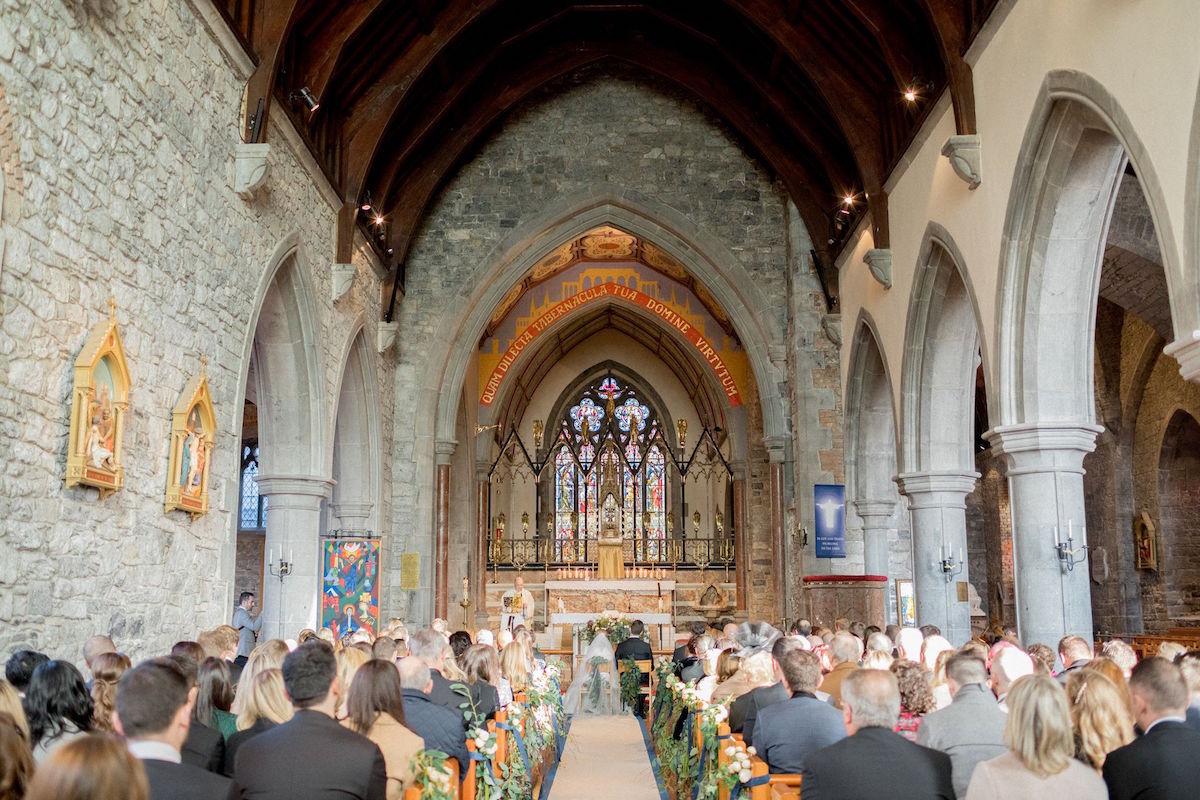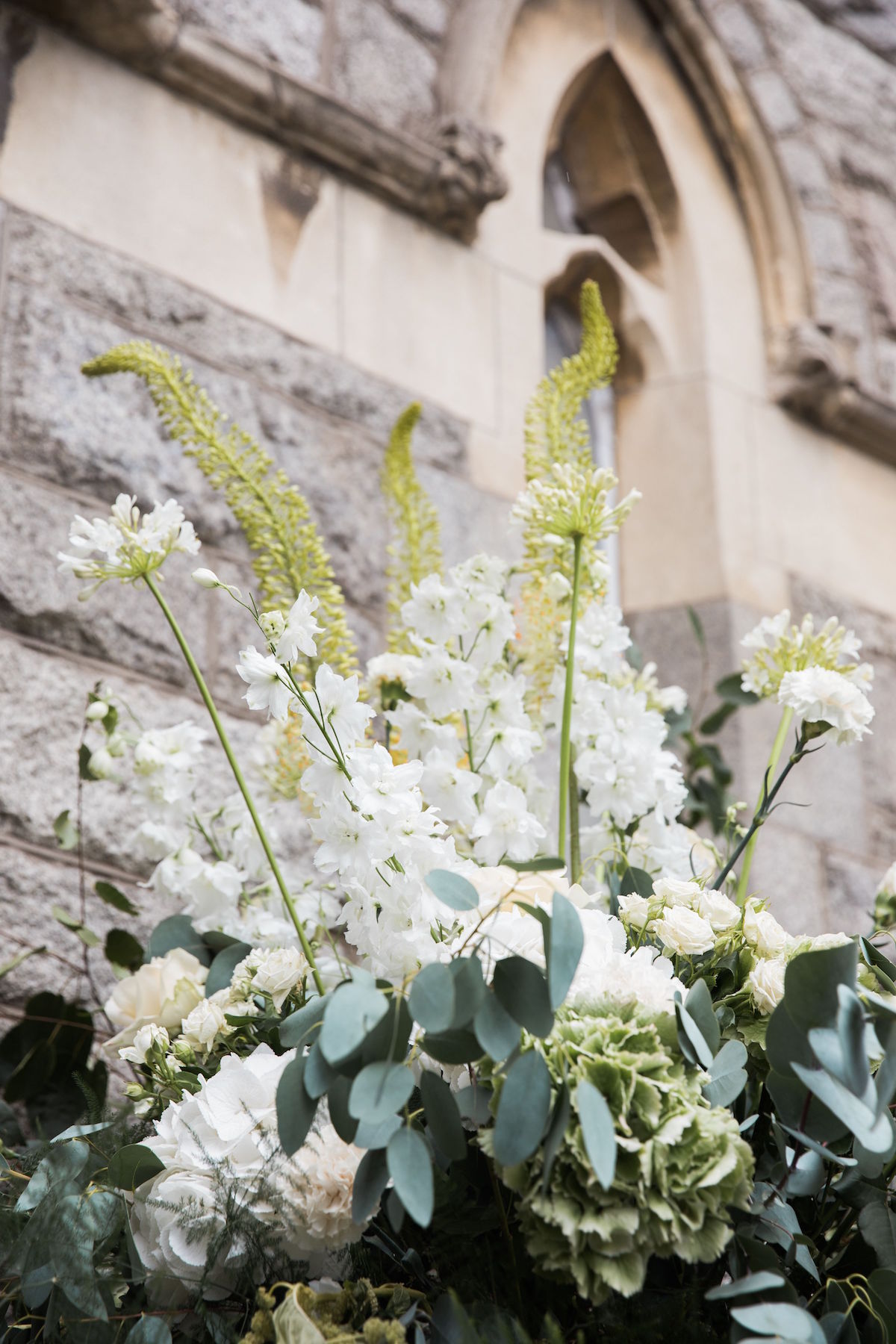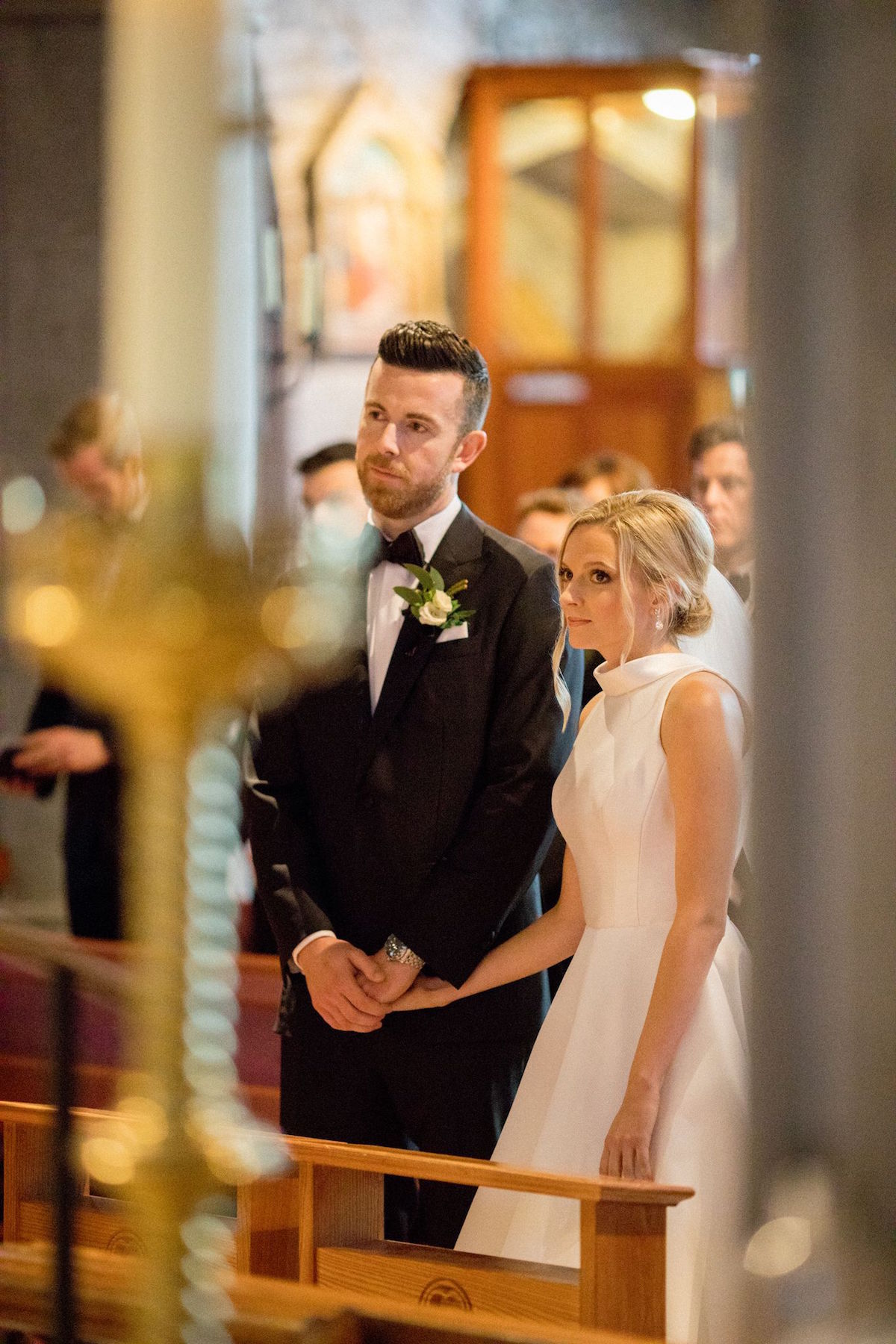
Ireland Church Wedding Guidelines You Need to Know
Once you’ve decided on a destination wedding in Ireland, one of the next big decisions is the kind of ceremony you plan to have. There are several options, but many of the couples I work with still opt for a traditional church wedding. There’s something very moving about two people committing themselves to one another through a shared faith in a sacred space. And, of course, there are many beautiful churches, chapels and cathedrals in Ireland that provide an incredible backdrop for a ceremony. But there are certain Ireland church wedding guidelines to be aware of. These will be different from one religion or denomination to the next and from one parish to another. But here are some of the key points you should note as you plan your Ireland church wedding.
Local vs non-local weddings. It’s much easier to arrange an Ireland church wedding if you’re already a member of a congregation and wish to be married in your parish church. However, if you’re not local, it can be more complicated. Some churches will allow non-locals to have their ceremony there but may require you to arrange your own priest. This is because many priests and ministers prefer to perform ceremonies only for couples they know. Other churches will not grant the request at all. It’s important to contact the church you want early on in your planning process to find out what their policy is.
Research back-up options. Some couples are heartbroken when they find the church they have fallen in love with isn’t available or doesn’t cater to non-local weddings. So it’s a good idea to research other local churches and create a shortlist of two or three in the area that you can approach.

Choose the right date. Traditionally, most churches in Ireland would not conduct wedding ceremonies on a Sunday. However, this Ireland church wedding restriction has eased a little recently, thanks to the high demand for weddings following the COVID-19 lockdowns. Check with your priest or minister to find out which dates they are available (these usually will also not include religious holidays).
Pre-marital course. Some churches (especially the Catholic church) require that couples complete a pre-marriage course in order to marry in the church. You will need to provide a certificate to show that you have taken part.
Music restrictions. Traditional churches often have limitations on the music that can be played at your wedding, i.e. hymns and classical music. It’s important to discuss and agree your choices with the priest or minister ahead of time.

Photography. A wedding is a solemn and sacred ceremony in any church. So, while most celebrants understand the need for photography, it’s important that it doesn’t distract from what is taking place. Many churches have restrictions like no flash photography or no moving around once the ceremony begins. Some don’t allow any photography or videography at all. Ask about the rules and be sure to communicate these with your photographer and videographer.
Dress code. Some churches have a dress code in place. For example, necklines should not be too revealing, shoulders should be covered, head coverings, men should not wear shorts, etc. Find out whether the church has any rules around dress and communicate these clearly to your guests.
Financial contribution or fee. Traditionally, couples make some financial contribution to the church where they marry but payment can vary from one congregation to another and is often donation-based. Ask what is expected and if there are any additional fees (for example, a fee for the organist).
As I mentioned before, Ireland church wedding guidelines do vary quite considerably. Every church is different, so the best thing to do is make contact early to avoid any confusion or disappointment!
Slán go Fóill,
Tara
Images by Christina Brosnan, Doreen Kilfeather




